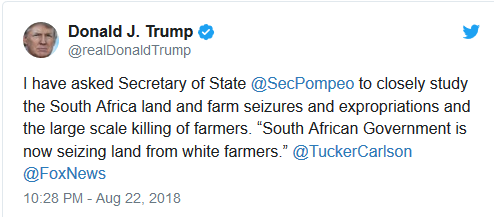On Tuesday, The U.K. Daily Mail posted an article about what is happening in Africa with the Omicron variant of the coronavirus.
The article reports:
Daily Covid cases in South Africa have fallen again by 22 per cent compared to last week’s figures, fuelling hopes that the country’s Omicron wave is over.
South Africa, whose scientists detected the variant, recorded 21,099 new cases in the last 24 hours, down by nearly a quarter on the 26,976 infections confirmed last Wednesday.
A fifth fewer people were tested for the virus in the last 24 hours compared to the same period last week, but test positivity — the proportion of those tested who are infected — has been trending downwards for nine days.
…The falling case numbers come despite only 25 per cent of South Africans being double-jabbed and boosters not being dished out in the country.
It raises hopes that the UK’s Omicron wave will also be short-lived, with Britain also having a layer of protection in its booster programme.
…The data from the country suggests the outbreak is fading around a month after it was first detected, while ministers and scientists in the UK are panicking about the impact the wave will have over the coming weeks.
…The rise of Omicron is out of step with gloomy Government modelling that predicted the mutant super-strain was doubling every two days and could lead to a million infections per day by the end of the year.
Meanwhile, latest hospital data shows there were 813 admissions across the UK on December 18, marking an increase of just five per cent in a week. Deaths dropped 15 per cent week-on-week to 140.
Hospital admissions are rising more slowly than in previous waves and a growing body of evidence suggests Omicron is causing milder illness.
The article concludes:
Professor Paul Hunter, an infectious diseases expert at the University of East Anglia, told MailOnline that Mr Johnson had made the right decision because cases ‘look like they’ve peaked’.
He said: ‘It’s not all doom and gloom, it does look like Omicron has stopped growing. The numbers over the last few days seem to have plateaued and maybe even be falling.
‘It’s a bit too soon to be absolutely sure about that, but if it is the case Boris Johnson will breathe a sigh of relief. We have to be a little bit careful because it’s only a few days.
‘And because we’re getting closer to Christmas there is nervousness that people may not come forward for testing because they don’t want to test positive and miss out on meeting relatives.
‘Omicron overtook the other variants around December 14 so most of any changes from there on would be down to Omicron. So if it was still doubling every two days that would have shown and we should have been at 200,000 cases yesterday and certainly more than 200,000 cases today.
‘But the fact it has been around 91,000 raises the point that it might actually have peaked. But it will probably take until at least Wednesday to get an idea of a day that is not affected by the weekend. But I am more optimistic than I was a few days ago.’
There were 1.49million tests conducted today which is down from 1.56 million last Wednesday, but Professor Hunter said the ‘relatively small drop’ in testing would not hide a virus truly doubling every two days.
Test positivity is slowly increasing though with 13 per cent of samples positive for the virus by December 15, up from around 9 per cent the month before.
Latest hospital figures show there were 847 Covid admissions across the UK on December 17, up only 7 per cent on the previous week. There were a further 172 Covid deaths today, up 14 per cent.
Please follow the link above to read the entire article. It includes a number of graphs illustrating the impact of the coronavirus in Britain.






